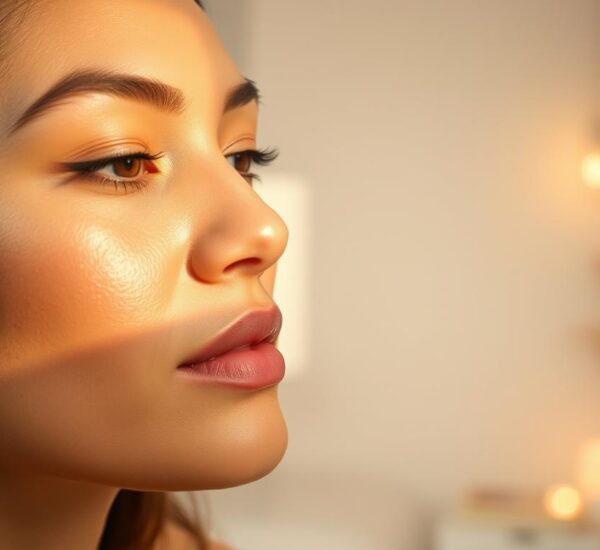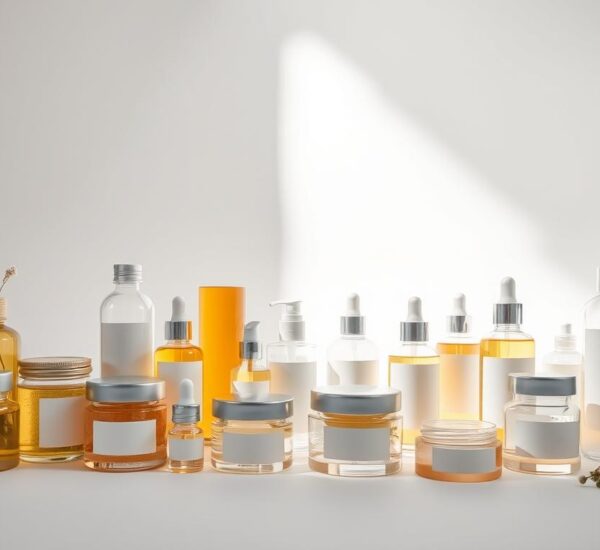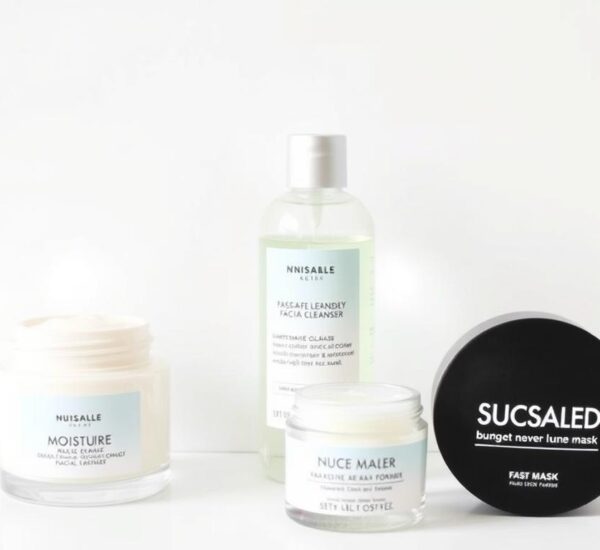Keeping your skin safe from the sun’s strong rays is key to healthy, young-looking skin. With so many choices, picking the best face sunscreen can feel tough.
When picking a sunscreen, think about your skin type, what you’re worried about, and what you like. Experts say using a sunscreen with SPF50 can really help prevent skin damage and some skin cancers from UV rays.
Choosing the right sunscreen for face helps shield your skin from the sun’s harm.
Key Takeaways
- Choose a sunscreen that suits your skin type and concerns.
- Consider a face sunscreen spf50 for optimal protection.
- Understand the importance of sunscreen in preventing skin damage and skin cancer.
- Be aware of the different types of sunscreens available, including chemical and physical sunscreens.
- Protecting your skin from UV radiation is key to keeping your skin healthy.
Importance of Sunscreen for Your Face
Sunscreen is key to keeping your facial skin healthy and young. It’s not just for looks; it shields your skin from the sun’s harmful rays.
The sun sends out UVA and UVB rays that harm our skin. UVA rays cause wrinkles and age spots by going deep into the skin. UVB rays lead to sunburn and can cause skin cancer. A broad-spectrum sunscreen protects against both.
Understanding UV Rays
UV radiation from the sun or tanning beds damages skin and can cause cancer. The American Academy of Dermatology stresses the need for sunscreen in sun protection. Knowing how UV rays harm us helps us protect better.
The Role of SPF
SPF, or Sun Protection Factor, shows how well a sunscreen blocks UVB rays, which cause sunburn. SPF 30 blocks 96.7% of UVB rays, and SPF 50 blocks 98.5%. Use sunscreen with at least SPF 30 every day.
How Sunscreen Protects Against Skin Damage
Sunscreen acts as a shield, stopping UV rays from harming your skin. Zinc oxide and titanium dioxide in physical sunscreens reflect UV rays. Chemical sunscreens absorb UV rays and release heat. Sunscreen prevents sunburn, aging, and cancer by blocking UV rays.
Different Types of Sunscreen
Choosing the right sunscreen for your face is key to protecting it from the sun. Not all sunscreens are the same. Knowing their differences is important for the best protection.
Chemical vs. Physical Sunscreens
Chemical sunscreens soak up UV rays and turn them into heat. This heat is then released from your skin. They often have ingredients like oxybenzone and avobenzone.
Physical sunscreens, or mineral sunscreens, create a barrier on your skin’s surface. This barrier reflects UV rays. Zinc oxide and titanium dioxide are common in these sunscreens, making sunscreen for face with zinc oxide a favorite.
Physical sunscreens are good for sensitive skin because they’re less likely to irritate. But, they might leave a residue on your skin.
| Characteristics | Chemical Sunscreens | Physical Sunscreens |
|---|---|---|
| Active Ingredients | Oxybenzone, Avobenzone | Zinc Oxide, Titanium Dioxide |
| How They Work | Absorb UV rays | Reflect UV rays |
| Suitability for Sensitive Skin | May cause irritation | Generally less irritating |
Broad Spectrum vs. Regular Sunscreens
Broad-spectrum sunscreens protect against UVA and UVB rays. This makes them better for overall skin protection. Regular sunscreens might only block UVB rays, which cause sunburn but also damage skin.
For the best protection, use a face sunscreen spf50 that’s broad-spectrum. This helps prevent early aging and skin cancer.
Knowing the differences between chemical and physical sunscreens is key. Also, broad-spectrum protection is vital. This knowledge helps you pick the right sunscreen for your face.
Key Ingredients to Look For
Choosing the right sunscreen for your face is key. The ingredients in your sunscreen affect how well it protects your skin. They help shield against UV damage, early aging, and skin cancer.
Let’s explore the must-have ingredients in face sunscreens. Zinc oxide and titanium dioxide are vital. They block UV rays, giving you broad-spectrum protection.
Zinc Oxide and Titanium Dioxide
Zinc oxide and titanium dioxide sit on your skin’s surface. They deflect UV rays. They’re great for sensitive skin because they’re less likely to irritate.
When picking a face sunscreen, make sure it has one of these. They offer reliable protection.
Antioxidants in Sunscreens
Antioxidants boost sunscreen’s protective power. They fight off free radicals from UV rays. This helps prevent skin damage and aging.
Vitamins E and C, and ferulic acid are common antioxidants. They add extra protection beyond just blocking UV rays.
Hydrating Ingredients to Consider
Hydrating ingredients are important for skin health, even with sunscreen. Hyaluronic acid, glycerin, and ceramides keep your skin moist. They make the sunscreen feel better on your skin.
For dry or sensitive skin, a sunscreen with hydrating ingredients is a good choice. It helps keep your skin moisturized.
Factors to Consider When Choosing Sunscreen
Choosing the right sunscreen for your face is important. It depends on your skin type, how sensitive you are, and what you do every day. It’s not just about picking any sunscreen. You need to find one that fits your specific needs.
Skin Type: Oily, Dry, or Combination
Your skin type is key in picking the best sunscreen. If you have oily skin, an oil-free face sunscreen is best. It won’t clog your pores. If you have dry skin, look for sunscreens that moisturize your skin all day.
If you have combination skin, you need a sunscreen that balances. It should control shine in oily areas and moisturize dry areas. Knowing your skin type helps narrow down your sunscreen choices.
| Skin Type | Sunscreen Characteristics | Recommended Features |
|---|---|---|
| Oily | Lightweight, non-comedogenic | Oil-free, matte finish |
| Dry | Moisturizing, hydrating | Contains hyaluronic acid, glycerin |
| Combination | Balanced, controls shine | Non-comedogenic, lightweight |
Sensitivity and Allergies
If you have sensitive skin, choose a sensitive skin face sunscreen that’s gentle. Look for products that are “fragrance-free” and “hypoallergenic.” Mineral sunscreens with zinc oxide or titanium dioxide are good for sensitive skin because they’re gentle.
Daily Use vs. Outdoor Activity
What you use sunscreen for affects your choice. For daily use, a lightweight sunscreen is best. It won’t mess with your makeup or feel heavy. For outdoor activities, you need a stronger sunscreen with a high SPF and water-resistance. It must stay effective even when you sweat.
For outdoor activities, consider a natural face sunscreen. It protects your skin from the sun and nourishes it with natural ingredients.

Best Sunscreen Formulations for Daily Use
Daily sunscreen use is key, and the right formula makes a big difference. We need sunscreens that work well and feel good on our skin. They should be light, not greasy, and simple to apply.
In this section, we’ll look at the top sunscreen types for daily use. This includes lightweight lotions, sprays, and tinted sunscreens. We’ll focus on oil-free and non-comedogenic options for all skin types.
Lightweight Lotion Formulas
Lightweight lotions are perfect for daily use. They protect well without feeling greasy. They’re oil-free and non-comedogenic, great for acne-prone skin. Look for hyaluronic acid to keep your skin hydrated.
Sunscreen Sprays
Sunscreen sprays are quick and easy to apply, perfect for busy days. They’re often oil-free and gentle on sensitive skin. Just make sure to apply enough and rub it in well.
Tinted Sunscreens
Tinted sunscreens protect your skin and add a natural look. They come in many shades and can be used as a makeup base or alone. Choose one that matches your skin tone and coverage needs.
Here’s a quick guide to help you pick the best sunscreen for daily use:
| Formulation | Key Benefits | Suitable for |
|---|---|---|
| Lightweight Lotions | Non-greasy, hydrating, broad-spectrum protection | All skin types, including acne-prone |
| Sunscreen Sprays | Convenient, quick application, oil-free | Sensitive skin, active lifestyles |
| Tinted Sunscreens | Cosmetic coverage, UV protection, customizable coverage | Those seeking a multi-tasking product for everyday use |
How to Apply Sunscreen Correctly
To get the most out of your sunscreen for face, applying it right is key. Doing it correctly means your skin gets the best protection against UV rays.
The Right Amount to Use
It’s important to use the right amount of sunscreen. Adults usually need about one ounce, or a shot glass full, for all exposed skin. For your face, a nickel-sized amount is enough. Don’t be stingy; using less can make the sunscreen less effective.
Timing for Application
When to apply sunscreen is just as important. Use face sunscreen spf50 15 to 30 minutes before going outside. This lets it bind to your skin for the best protection. Remember to apply it on cloudy days too, as UV rays can get through the clouds.
Reapplication Tips
Reapplying sunscreen is just as important as the first time. Reapply every two hours or right after swimming or sweating. If you’re using sunscreen for face with zinc oxide, reapply often because it can wash off easily. Here are some tips for reapplying:
- Use a gentle reapplication technique to avoid irritating the skin.
- Consider using a sunscreen spray for easier reapplication over makeup.
- Keep a spare bottle in your bag or car for convenient reapplication on the go.
By following these tips, your skin will stay protected all day.
Best Sunscreens for Sensitive Skin
Finding the right sunscreen for sensitive skin can be tough. You need something that protects from UV rays but is gentle. It should not irritate your skin.
When looking for sunscreen for sensitive skin, focus on a few things. Fragrance-free and mineral sunscreens are good because they are gentle and don’t irritate.
Fragrance-Free Options
Sunscreens with fragrances can irritate sensitive skin. That’s why fragrance-free sunscreens are a good choice. They protect your skin without the risk of irritation from fragrances.
- CeraVe Sunscreen Lotion is a popular fragrance-free option that is also dermatologist-recommended.
- Neutrogena Sheer Zinc Dry-Touch Sunscreen is another well-regarded choice, providing broad-spectrum protection.
Mineral Sunscreens for Irritation-Prone Skin
Mineral sunscreens use zinc oxide or titanium dioxide to protect your skin. They sit on the skin’s surface and are often gentler. This makes them less likely to irritate your skin compared to chemical sunscreens.
| Product | SPF | Key Ingredients |
|---|---|---|
| EltaMD UV Clear Broad-Spectrum SPF 46 | 46 | Zinc Oxide |
| Blue Lizard Australian Sunscreen | 30+ | Zinc Oxide, Antioxidants |
| La Roche-Posay Anthelios Melt-In Sunscreen Milk | 60 | Titanium Dioxide, Zinc Oxide |
Talking to a dermatologist can help you find the best sunscreen. They can give you advice based on your skin type and needs. They can help you choose a sunscreen that protects your skin without causing irritation.
Best Sunscreens for Oily Skin
Choosing the right sunscreen is key for oily skin. It’s not just about protecting from the sun. It’s also about keeping your skin looking matte.

For oily skin, look for sunscreens that are oil-free and non-comedogenic. These won’t clog pores. A good sunscreen should protect well without feeling heavy or greasy.
Matte Finish Formulas
Matte finish sunscreens are great for oily skin. They control shine and leave your skin smooth. These formulas often have ingredients that soak up extra oil, perfect for daily use.
- Look for products that are labeled “matte finish” or “oil-control.”
- Some sunscreens contain silica or talc, which help absorb excess oil.
- Consider sunscreens with zinc oxide or titanium dioxide, as these provide excellent sun protection.
Non-Comedogenic Options
Non-comedogenic sunscreens don’t clog pores, making them perfect for oily skin. They’re usually lightweight and less likely to cause acne.
| Brand | Product | Key Features |
|---|---|---|
| Neutrogena | Sheer Zinc Dry-Touch Sunscreen | Non-comedogenic, oil-free, zinc oxide |
| La Roche-Posay | Anthelios Melt-In Sunscreen Milk | Lightweight, non-greasy, broad-spectrum protection |
| EltaMD | UV Sport Broad-Spectrum SPF 50 | Water-resistant, non-comedogenic, ideal for active use |
Choosing an oil-free and non-comedogenic sunscreen is smart for oily skin. It offers sun protection without making your skin worse.
Budget-Friendly Sunscreens
Protecting your skin from the sun doesn’t have to cost a lot. You can find affordable sunscreens that work well. They don’t have to be expensive to be good.
Neutrogena and EltaMD are great for those on a budget. They make sunscreens with high SPF and zinc oxide.
Affordable Brands That Deliver
Here are some top affordable brands:
- Neutrogena: Their Sheer Zinc Dry-Touch Sunscreen has SPF 50 and protects well.
- EltaMD: Their UV Sport Broad-Spectrum SPF 50 is great for athletes and outdoor lovers.
- CeraVe: They make sunscreens with hyaluronic acid for daily use.
These brands show you can get good sun protection without spending a lot. Their products are affordable and good for your skin.
Value Packs and Family Options
For families or those who use sunscreen a lot, value packs are a smart choice. Neutrogena and La Roche-Posay have multi-packs that save money.
When picking a value pack, think about the SPF and sunscreen type. Also, look for extra benefits like moisturizing. This ensures you get a product that fits your needs and budget.
Choosing budget-friendly sunscreens and value packs helps save money. Remember, the most important thing is to use sunscreen regularly. Find a product you like and use it every day.
Luxury Sunscreens Worth the Investment
Investing in premium skin care means choosing luxury sunscreens. They offer top-notch protection and extra benefits. These high-end products shield your skin from UV rays and also nourish and rejuvenate it.
Premium Formulas from High-End Brands
Brands like La Roche-Posay and Shiseido create premium sunscreens. They combine advanced UV protection with skincare benefits. These luxury sunscreens include innovative ingredients like antioxidants and hyaluronic acid. These help hydrate and protect your skin.
La Roche-Posay’s Anthelios line is known for its high-quality, dermatologist-tested formulas. They work well for all skin types, even sensitive skin.
Added Benefits of Luxury Sunscreens
Luxury sunscreens do more than protect from the sun. They also offer added anti-aging benefits. Ingredients like peptides and vitamin C help reduce fine lines and wrinkles. This leaves your skin looking smoother and younger.
- Advanced moisturizing properties to keep your skin hydrated all day.
- Anti-aging ingredients to fight signs of aging.
- High-quality, carefully chosen ingredients to reduce skin irritation risk.
Choosing a luxury sunscreen means protecting your skin and investing in its health and look.
Seasonal Considerations for Sunscreen Use
The seasons change, and so does our skin’s needs. It’s not just summer that requires sunscreen. UV rays affect our skin all year, in different ways.
Summer vs. Winter Sunscreen Needs
In summer, the sun’s rays are intense, and days are long. We need a sunscreen for face with face sunscreen spf50 to block UVA and UVB rays. Winter sun is weaker, but UV rays can harm us, even on cloudy days.
Choose a sunscreen for face with zinc oxide for all seasons. Zinc oxide protects our skin from UV rays. In summer, pick a light formula to avoid clogged pores. In winter, opt for something hydrating to fight dry skin.
Cloudy Days and UV Protection
Many think sunscreen is only for sunny days. But, up to 80% of UV rays can get through clouds. So, sunscreen is key every day.
Using the right sunscreen for face keeps our skin safe. It doesn’t matter if it’s sunny or cloudy. Sunscreen is a must for protecting our skin.
Conclusion: Finding Your Perfect Face Sunscreen
Finding the best sunscreen for your face can seem hard. But, with the right info, you can make a good choice. We’ve covered the main points to think about. This includes understanding UV rays and SPF, and picking the right ingredients for your skin.
Key Takeaways
When looking for the best face sunscreen, find one that protects against both UVA and UVB rays. Make sure it has an SPF of at least 30. Think about your skin type, whether it’s oily, dry, or a mix. Pick a formula that fits your needs.
Remember to apply sunscreen often, even more so when you’re outside.
Prioritizing Sun Protection
Make sun protection a big part of your daily skincare routine. Using the right face sunscreen helps protect your skin from harmful UV rays. It also lowers the risk of skin cancer and prevents early aging.
Whether you need a light lotion or a high SPF face sunscreen, there’s something for everyone. By picking the right sunscreen, you’re taking a big step towards keeping your skin healthy and safe. Check out our guide to find the perfect face sunscreen for you. Enjoy the peace of mind that comes with knowing you’re protected.



